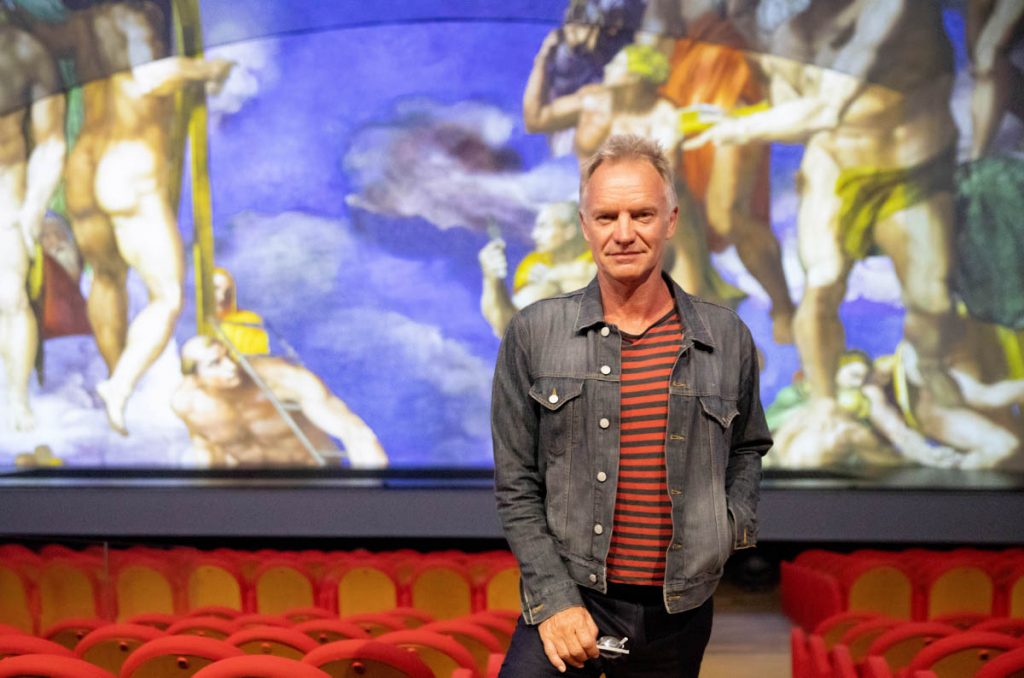National Catholic Register: You’ve said in interviews about your contribution to the show that you were immersed and well-schooled in the music of the Church. What particular influences — musical and religious — were important to you in making the composition?
Sting: I was an altar boy and I learned the Latin Mass but I loved plainsong, I loved Gregorian chant, Sung Mass. I still think I carry some of those cadences in my composition when I compose. So I’m grateful for that. [The Dies Irae] is normally done in a very minor key, a very doom-laden key, and I lifted it to a major key so it would be hopeful. I excised a lot of the very dark verses about Muslims being burnt in hell, and I thought it should be much more ecumenical. And then I love what Pope Francis said about God: he said “God is mercy,” and I thought that was a profound and simple statement that people had kind of forgotten over the years. So with the Last Judgement, if God is mercy, then there’s no judgment at all, just forgiveness. I don’t know if that’s heresy or not, but it works for me. So at the end of it, I put Deus Misericordiae [God’s mercy]. It’s not in the original text, I just added it and took liberties. I was surprised that the authorities seemed to like it and let it go. But I was happy last night to hear it and see it in that context, because it is an educational tool.
National Catholic Register: How much of a role does your faith play in your music, today and in the past?
Sting: It was both positive and also a little frightening. I was a very serious child so I used to get cosmic vertigo, ontological vertigo. The concept of eternity for me was really troubling, not only eternal damnation but eternal heaven — it just seemed like Mass that would never end. I thought: I don’t want either [laughs]. Eternity still horrifies me but at the same time being put into that conundrum — philosophical conundrum — was perfect to forge an artistic angst, an artistic struggle. Plus the history of the Church, you know blood and death and torture and all the rest of it, the Last Things. And the music and the liturgy fed this artistic soul. I’ve benefited from it, but I’ve also suffered from it.
To read Edward Pentin’s entire interview with Sting, click HERE

